
Uzbekistan joined the Commonwealth of Independent States in December 1991. However, it is opposed to reintegration and withdrew from the CIS collective security arrangement in 1999. Since that time, Uzbekistan has participated in the CIS peacekeeping force in Tajikistan and in United Nations-organized groups to help solve the Tajik and Afghan conflicts, both of which it sees as posing threats to its own stability. Uzbekistan is an active supporter of U.S. efforts against worldwide terrorism and joined the coalitions which have dealt with both Afghanistan and Iraq. It is a member of the United Nations, the Euro-Atlantic Partnership Council, Partnership for Peace, and the Organization for Security and Cooperation in Europe (OSCE). It belongs to the Organisation of Islamic Cooperation (OIC) and the Economic Cooperation Organization, which comprises 7 Central Asian countries: Pakistan, Uzbekistan, Kazakhstan, Turkmenistan, Afghanistan, Kyrgyzstan and Tajikistan. It is a founding member of and remains involved in the Central Asian Union, formed with Kazakhstan and Kyrgyzstan, joined in March 1998 by Tajikistan.

Anna Cecilia Malmström is a Swedish politician who served as European Commissioner for Trade from 2014 to 2019. She previously served as European Commissioner for Home Affairs from 2010 to 2014 and Minister for European Union Affairs from 2006 to 2010. She was a Member of the European Parliament (MEP) from Sweden from 1999 to 2006.

Although there has been a large degree of integration between European Union member states, foreign relations is still a largely intergovernmental matter, with the 27 states controlling their own relations to a large degree. However, with the Union holding more weight as a single entity, there are at times attempts to speak with one voice, notably on trade and energy matters. The High Representative of the Union for Foreign Affairs and Security Policy personifies this role.

Under the Basic Law, Macau's diplomatic relations and defence are the responsibility of the central government of China. Except diplomatic relations and defence, nonetheless, Macau has retained considerable autonomy in all aspects, including economic and commercial relations, customs control.

Switzerland is not a member state of the European Union (EU). It is associated with the Union through a series of bilateral treaties in which Switzerland has adopted various provisions of European Union law in order to participate in the Union's single market, without joining as a member state. Among Switzerland's neighbouring countries, all but one are EU member states.
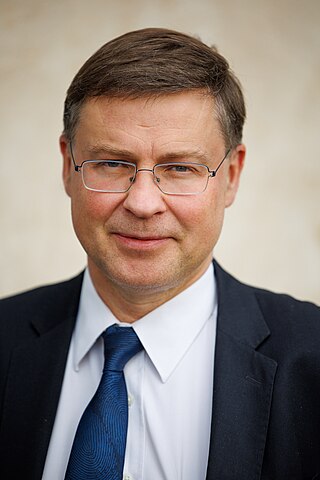
The European Commissioner for Trade is the member of the European Commission responsible for the European Union's common commercial policy.

Relations between Canada and the European Union (EU) and its forerunners date back to the 1950s. While the relationship is primarily an economic one, there are also matters of political cooperation. Canadians also use English and French — both European languages — as official and majority languages.

The Delegation of the European Union to the United States represents the European Union in the United States, working in coordination with the diplomatic and consular missions of all 27 EU Member States. It is located at 2175 K Street, N.W., in the West End neighborhood of Washington, D.C.
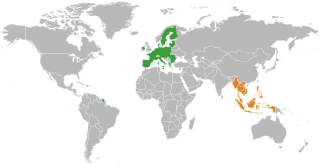
The ASEAN–European Union relations are the bilateral foreign relations between the two organisations; the European Union (EU), and the Association of Southeast Asian Nations (ASEAN). EU and ASEAN have been interacting with each other on the economic, trade, and political levels for more than four decades. The partnership between the EU and ASEAN dates back to 1972, when the EU established ties with ASEAN. The EU became an ASEAN Dialogue Partner in 1977.

Peter Altmaier is a German politician of the Christian Democratic Union (CDU) who served as Acting Minister of Finance from 2017 to 2018 and as Federal Minister for Economic Affairs and Energy from 2018 to 2021. He previously served as Federal Minister for the Environment, Nature Conservation and Nuclear Safety from May 2012 to December 2013 and Head of the German Chancellery and as Federal Minister for Special Affairs from December 2013 to March 2018. Altmaier is widely seen as one of Chancellor Angela Merkel's most trusted advisors and advocates for her more centrist wing of the CDU. He is known for his "compromising style" and was described in 2017 as "the most powerful man in Berlin".
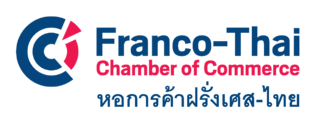
Founded in 1966 by French entrepreneurs, the Franco-Thai Chamber of Commerce (FTCC) is today one of the European chambers in Thailand with over 315 members, with business interests in France and Thailand, and more than 60 events organized every year.
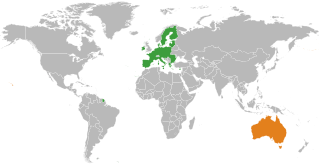
Relations between the Commonwealth of Australia and the European Union (EU) are founded on a Partnership Framework, first agreed in 2008. It covers not just economic relations, but broader political issues and cooperation.

Relations between the European Union (EU) and Japan date back to 1959. They have a strong trade relationship, particularly in investment flows.
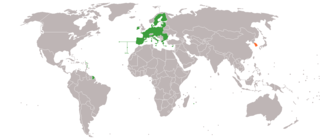
The European Union (EU) and South Korea are important trade partners: As of April 2023, Korea is the EU's third-largest importer. Excluding European countries, Korea has secured the third place on the list, following China and the United States. And the EU is Korea's third largest export destination. The two have signed a free trade agreement which came into effect at end of 2011. Furthermore, South Korea is the only country in the world with the three agreements covering economics, politics and security in effect as of 2020.

The Organisation for Economic Co-operation and Development is an intergovernmental organization with 38 member countries, founded in 1961 to stimulate economic progress and world trade. It is a forum whose member countries describe themselves as committed to democracy and the market economy, providing a platform to compare policy experiences, seek answers to common problems, identify good practices, and coordinate domestic and international policies of its members.

Mikheil Janelidze is a chairman of Center for European Governance & Economy. He is a former Georgian government official who served as Vice Prime Minister (2017–2018), Minister of Foreign Affairs (2015–2018), First Deputy Minister of Foreign Affairs (2015) and Deputy Minister of Economy and Sustainable Development of Georgia (2011-2015).

Between 2017 and 2019, representatives of the United Kingdom and the European Union negotiated the terms of Brexit, the UK's planned withdrawal from membership of the EU. These negotiations arose following the decision of the Parliament of the United Kingdom to invoke Article 50 of the Treaty on European Union, which in turn followed the UK's EU membership referendum on 23 June 2016 in which 52% of votes were in favour of leaving.
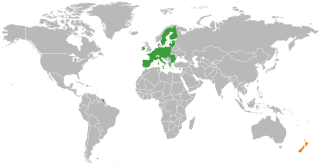
New Zealand and the European Union (EU) have solid relations and increasingly see eye-to-eye on international issues. The EU-New Zealand relations are founded on a Joint Declaration on Relations and Cooperation, first agreed in 2007. It covers not just economic relations, but broader political issues and cooperation.
The Institute for Free Trade (IFT) is a private, not-for-profit, research foundation based in central London. It aims to make "the intellectual and moral case for free trade" and sees Brexit as an "opportunity to revitalise the world trading system".


















